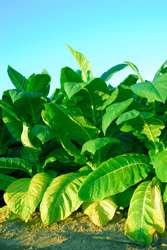Plants to express human proteins

Plants are emerging as important biotechnology tools for the production of highly purified recombinant proteins. The Plastomics network dissected the process of foreign gene insertion into plants and their potential use as protein production reservoirs.
Transformation of the gene of interest in the plastid genome offers certain advantages compared to introducing it into the nucleus. More than 70 % of the leaf protein will consist of the recombinant protein and transfer of plastid DNA occurs through maternal transmission and not through pollen, providing a strong biological containment. Furthermore, gene integration occurs via homologous recombination at specific and predictable sites of the genome with hardly any silencing being reported.
The aim of the European Plastomics project was to understand the genes and proteins implicated during plastid transformation of tobacco, tomato and potato. The ultimate goal was to improve plastid transformation frequencies, the regulated expression of transgenes in different plastid types and the stability of expressed proteins.
Project teams succeeded in identifying the proteins involved in transgene integration into and excision from the plastid genome. The process of gene transcription was further delineated and control elements were generated that improved transcription of foreign genes in tobacco chloroplasts. An important achievement was the development of a cleavable protein-fusion system capable of producing large amounts of interferon 2b in tobacco chloroplasts.
The information generated during the Plastomics project enhanced our understanding of the processes underlying the insertion and removal of foreign genes into the plastid genome of plants. Certain findings proved to be commercially exploitable and culminated with the application of a patent for a translation control element.
Overall, project results are expected to have significant implications in the rapidly expanding field of plant biotechnology.
Provided by CORDIS



















